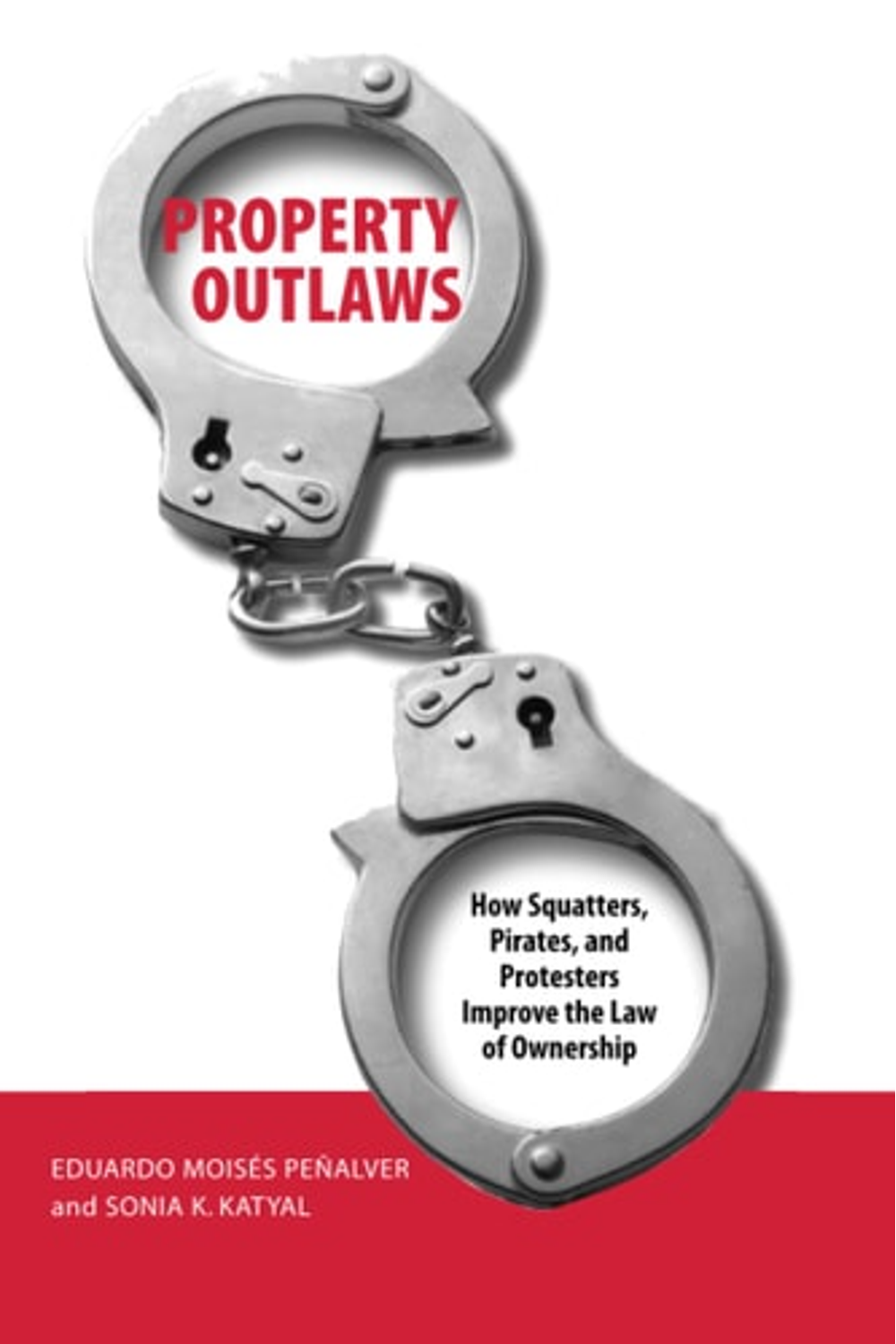Discover the surprising power of breaking the rules in “Property Outlaws: How Squatters, Pirates, and Protesters Improve the Law of Ownership.” Authors Eduardo M. Penalver and Sonia Katyal turn conventional wisdom on its head, arguing that disobedience to property lawfrom squatting in abandoned buildings to file-sharing and disruptive protestscan be a vital engine for legal reform. This compelling book, published by Yale University Press, examines how these “property outlaws” expose the flaws and limitations of existing regulations, pushing the legal system to evolve and adapt. Explore real-world examples and gain a fresh perspective on the dynamic relationship between property rights, social justice, and the ever-changing landscape of law. A must-read for anyone interested in law, business, or social change.
Property Outlaws: How Squatters, Pirates, and Protesters Improve the Law of Ownership
19,79 $
In stock
Description
Property Outlaws puts forth the intriguingly counterintuitive proposition that, in the case of both tangible and intellectual property law, disobedience can often lead to an improvement in legal regulation. The authors argue that in property law
**Property Outlaws: How Squatters, Pirates, and Protesters Improve the Law of Ownership A Provocative Look at Property Law Disobedience** Challenge your assumptions about property law with "Property Outlaws: How Squatters, Pirates, and Protesters Improve the Law of Ownership" by Eduardo M. Penalver and Sonia Katyal. Published by Yale University Press in 2010, this thought-provoking book offers a counterintuitive yet compelling argument: that acts of disobedience, from squatting and piracy to organized protests, can serve as catalysts for positive change and refinement within the legal frameworks governing both tangible and intellectual property. Penalver and Katyal delve into the often-overlooked role of "property outlaws" in shaping the evolution of legal norms. Instead of simply viewing these actors as lawbreakers, the authors present them as agents of disruption who expose the rigidities, inefficiencies, and inherent limitations of existing property regulations. Through meticulously researched case studies and insightful legal analysis, the book demonstrates how these acts of defiance can force a re-evaluation of established principles and ultimately lead to a more equitable and responsive legal system. "Property Outlaws" doesn't just condemn or condone; it analyzes. It examines the underlying motivations and consequences of various forms of property disobedience. Squatters, for instance, can highlight the problem of abandoned or underutilized properties, prompting reforms in land use laws and abandonment regulations. Pirates, in the context of intellectual property, can challenge the scope and duration of copyright protections, leading to debates about fair use, access to information, and the balance between creators' rights and the public domain. Protesters, by strategically occupying or disrupting access to private property, can raise awareness about social injustices and advocate for policy changes related to environmental protection, housing affordability, and corporate accountability. This book moves beyond traditional legal scholarship by incorporating perspectives from economics, sociology, and political theory. Penalver and Katyal provide a nuanced understanding of the complex interplay between property rights, social norms, and legal evolution. They ask crucial questions such as: When is disobedience justified? What are the ethical limits of property rights? And how can the law effectively balance the interests of property owners with the broader needs of society? Property Outlaws has garnered significant attention and praise within academic circles for its innovative approach to property law. Critics have lauded its insightful analysis, compelling arguments, and its ability to challenge conventional wisdom. It is a must-read for legal professionals, academics, policymakers, and anyone interested in the dynamic relationship between law, property, and social change. Prepare to have your perceptions challenged and your understanding of property law fundamentally reshaped.
Additional information
| Authors | |
|---|---|
| Binding | |
| Condition | |
| ISBN-10 | 0300122950 |
| ISBN-13 | 9780300122954 |
| Language | |
| Pages | 294 |
| Publisher | |
| Year published | |
| Weight | 454 |
SKU: M-9780300122954-0
Categories: Business, Law, Law Practice, Property, Reference
Related products
-
Children’s Illustrated Thesaurus
15,16 $ -
The Great Jimbo James (Solos)
13,15 $
- Additional information
- Currencies
- USD – United States dollar
- EUR – Euro
- GBP – Pound sterling
- CNY – Chinese yuan
- BRL – Brazilian real
- MXN – Mexican peso
- JPY – Japanese yen
- PHP – Philippine peso
- THB – Thai baht
- PLN – Polish złoty
- CAD – Canadian dollar
- MYR – Malaysian ringgit
- AUD – Australian dollar
- TWD – New Taiwan dollar
- CZK – Czech koruna
- SEK – Swedish krona
- HUF – Hungarian forint
- ILS – Israeli new shekel
- CHF – Swiss franc
- HKD – Hong Kong dollar
- DKK – Danish krone
- SGD – Singapore dollar
- NOK – Norwegian krone
- NZD – New Zealand dollar





